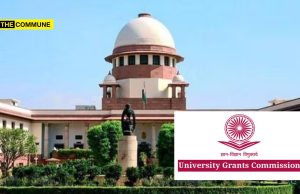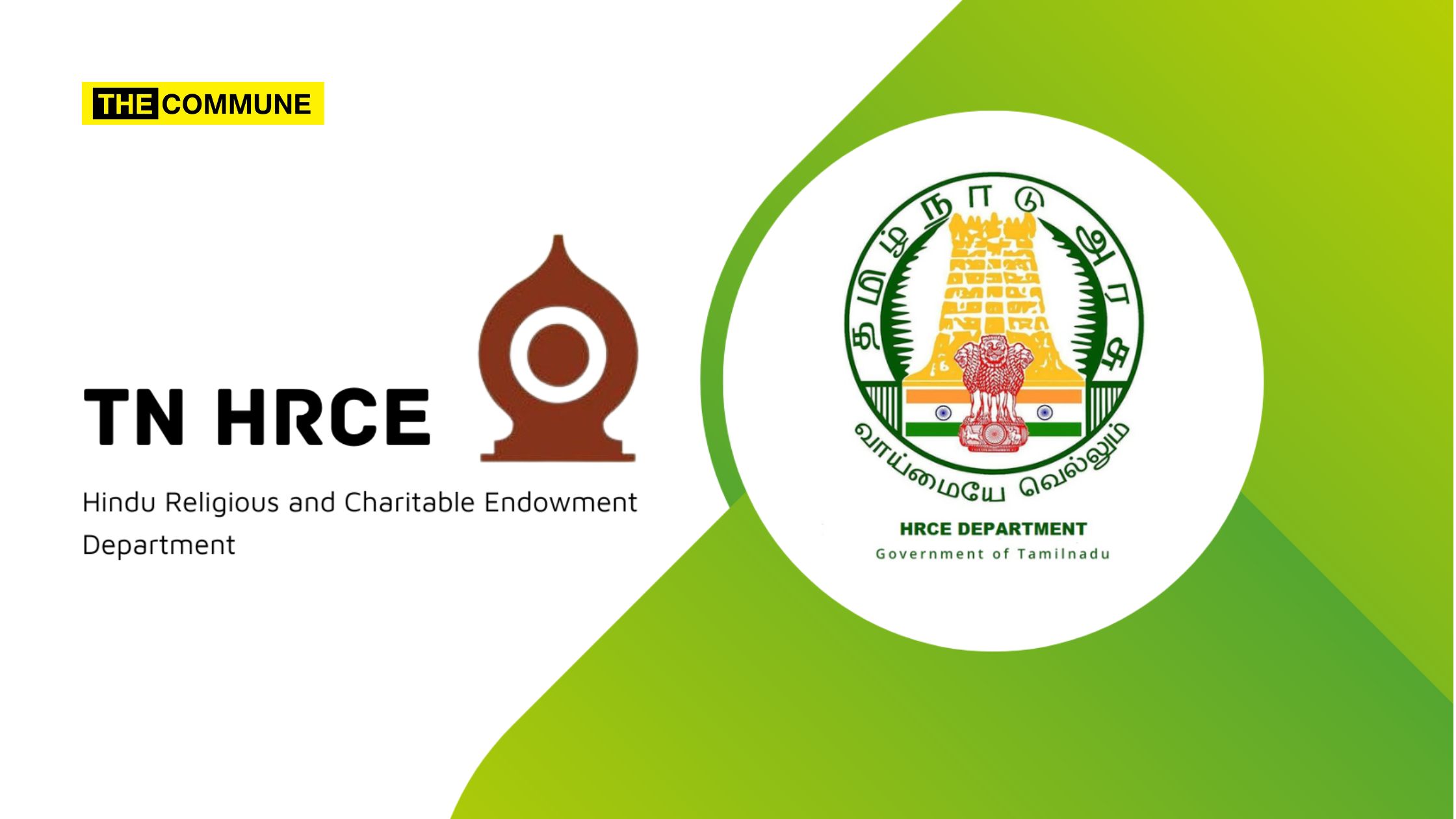
The Tamil Nadu Government’s Hindu Religious and Charitable Endowments (HR&CE) Department is under scrutiny for its alleged violation of the Right to Information Act, 2005, as concerned citizens raise questions about the department’s transparency and accountability.
A recent investigation by temple activist TR Ramesh reveals that the HR&CE Department, notorious for being one of the worst offenders of the Right to Information Act in Tamil Nadu, has failed to provide any information under the said Act.
One of the worst offenders of the Right to Information Act, 2005 in Tamil Nadu is the TN Govt's HR&CE Department @tnhrcedept
There are no information published under RTI Act by the Department.
If you go to their website https://t.co/hD6AsB7uyn
A. You will see a single… pic.twitter.com/FNq8luXFol
— trramesh (@trramesh) December 15, 2023
The department’s official website, https://hrce.tn.gov.in/hrcehome/index.php, displays either a conspicuously empty page titled “Proactive Disclosure of Information” or a peculiar message instructing visitors not to leave the mouse on the page.
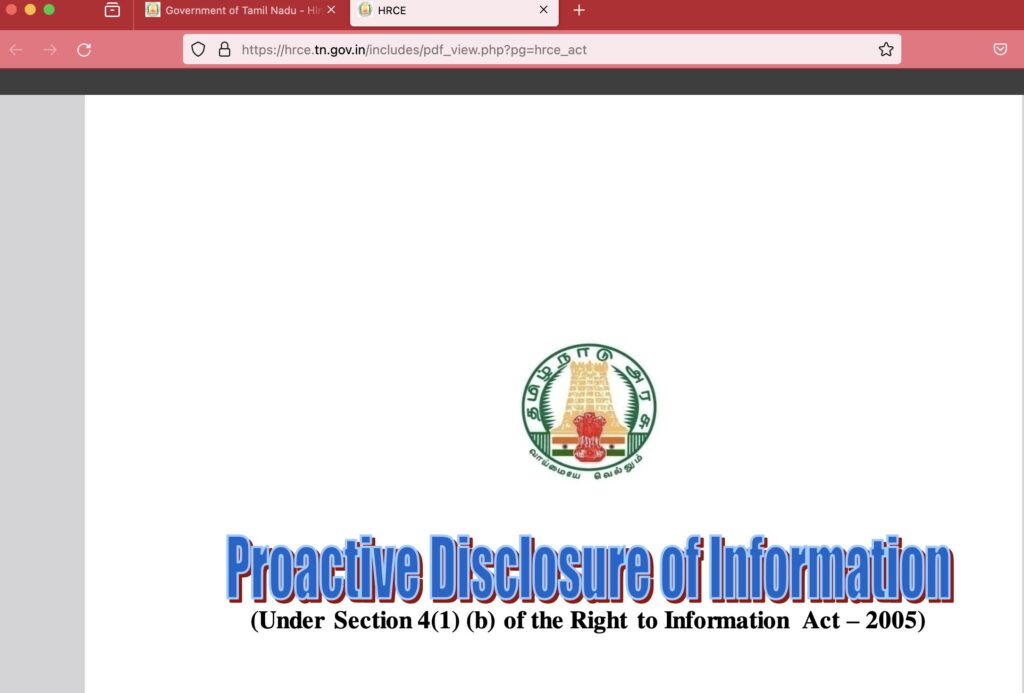
The lack of information disclosure under the RTI Act raises concerns about the department’s commitment to transparency and public accountability. Circulars and orders on the website have not been updated since 2 August 2022, potentially indicating a reluctance to publish information that could be legally contested.
Out of 1241 court orders (as indicated by the serial number), only 264 are listed. These include court orders from 2022 and 2023. There are several from 2021 and before that have not been updated in the website.
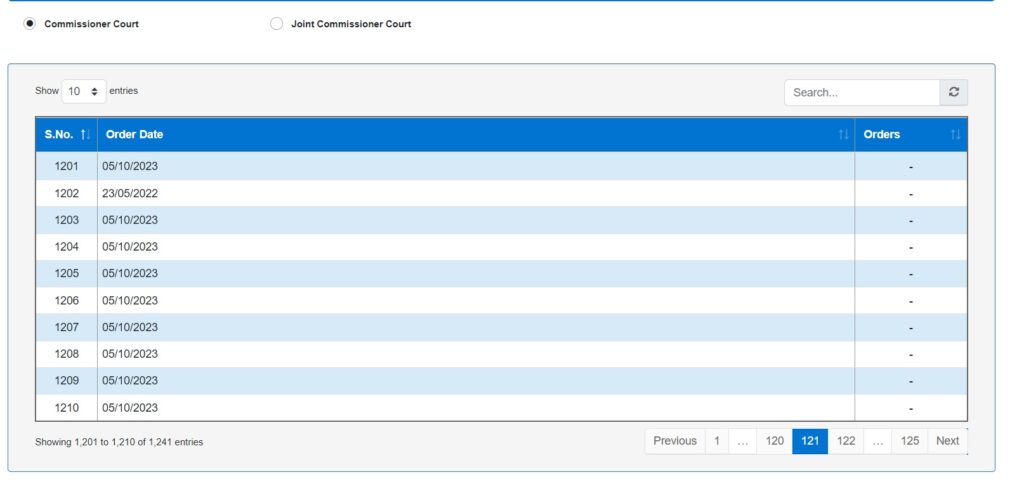
Furthermore, there is a noticeable absence of any government orders related to Hindu temples on the website. It is alleged that the department may be avoiding the publication of orders to prevent potential legal challenges from temple activists, accusing them of issuing illegal orders without proper authority.
One of the primary grievances voiced against the HR&CE Department is its financial practices, particularly the collection of 12% of temple income as “Administration Fees” and an additional 4% as “Audit Fees.” It is alleged that such financial practices, coupled with the department’s alleged failure to protect temple properties and misuse of temple funds for non-temple purposes, reflect a lack of commitment to the well-being of Hindu temples.
What Else Is There On The Site?
Under the Schemes tab, several schemes of the department are enlisted.
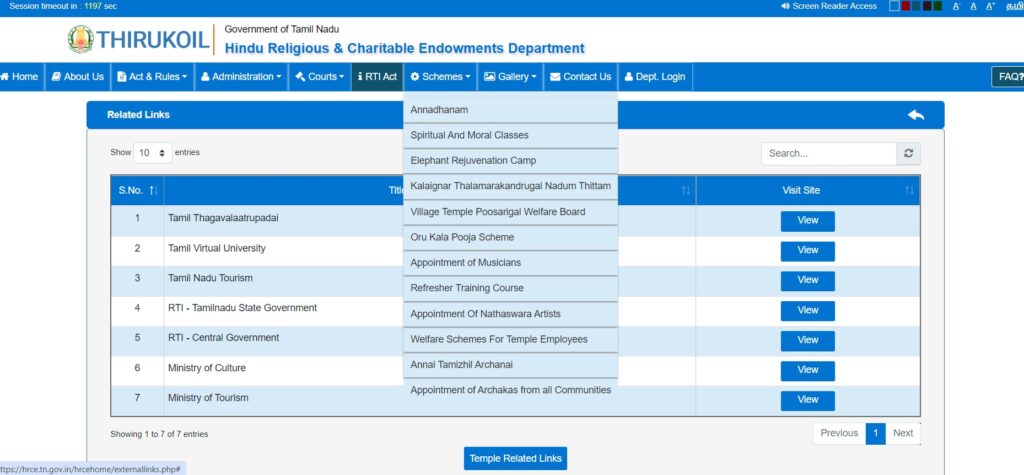
Of these, not every sub heading has detailed information. Some are vague or are not updated.
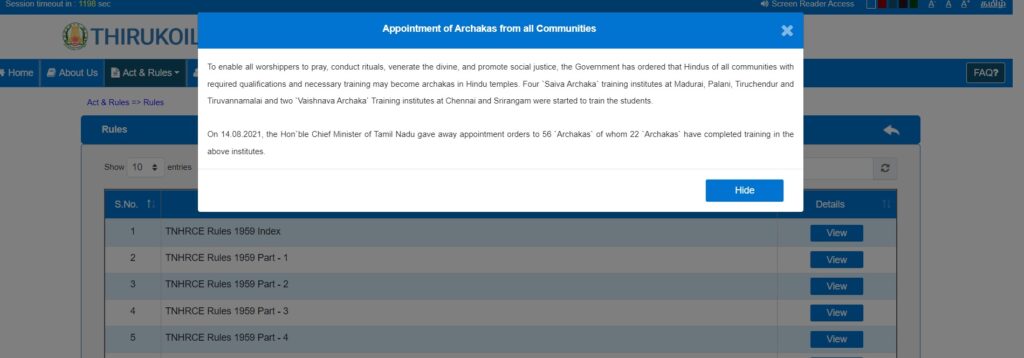
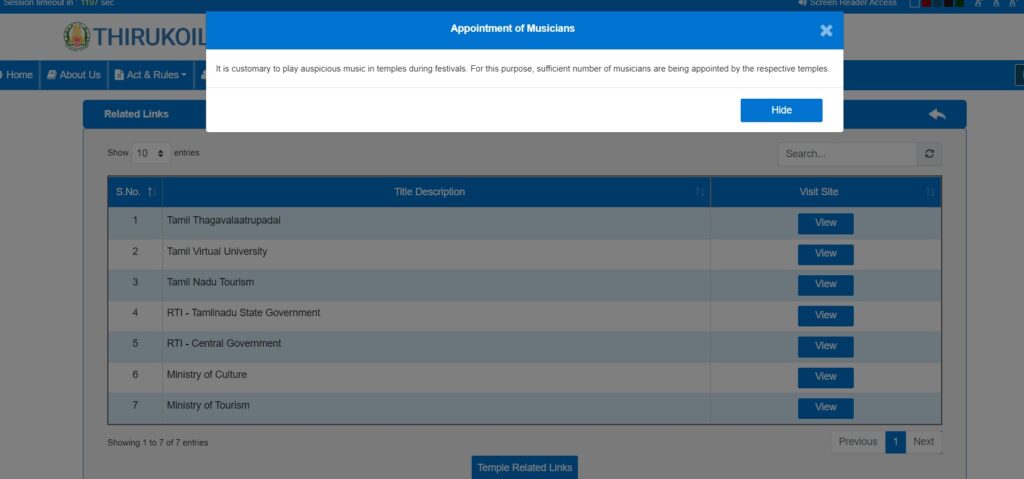 \
\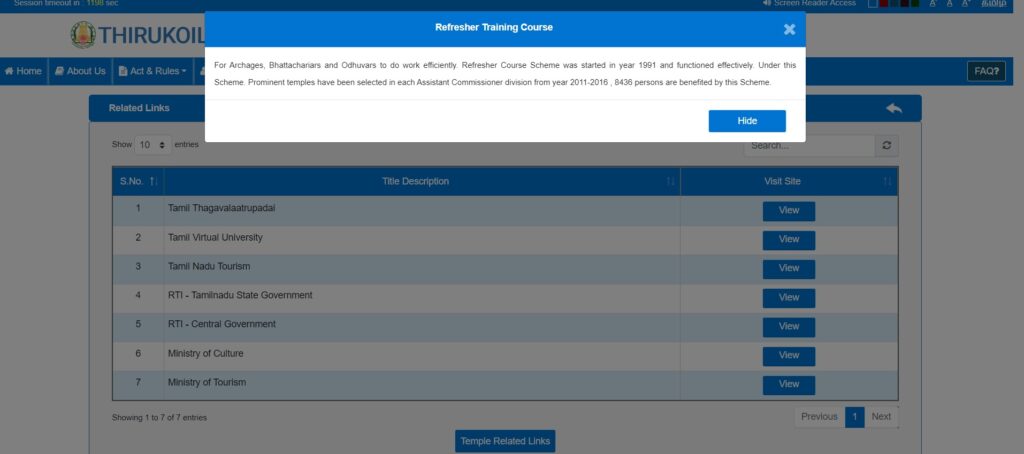
Critics argue that it is high time for the department to be held accountable in the courts and, in some quarters, for its closure to be considered to ensure the protection and proper administration of Hindu temples in Tamil Nadu.
Subscribe to our channels on Telegram, WhatsApp, and Instagram and get the best stories of the day delivered to you personally.




